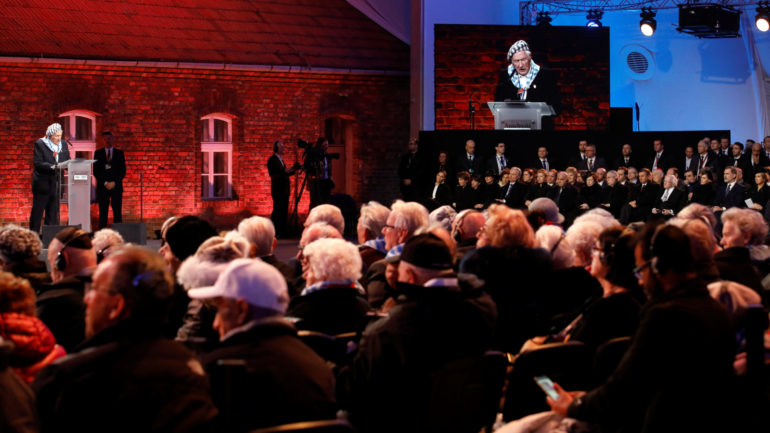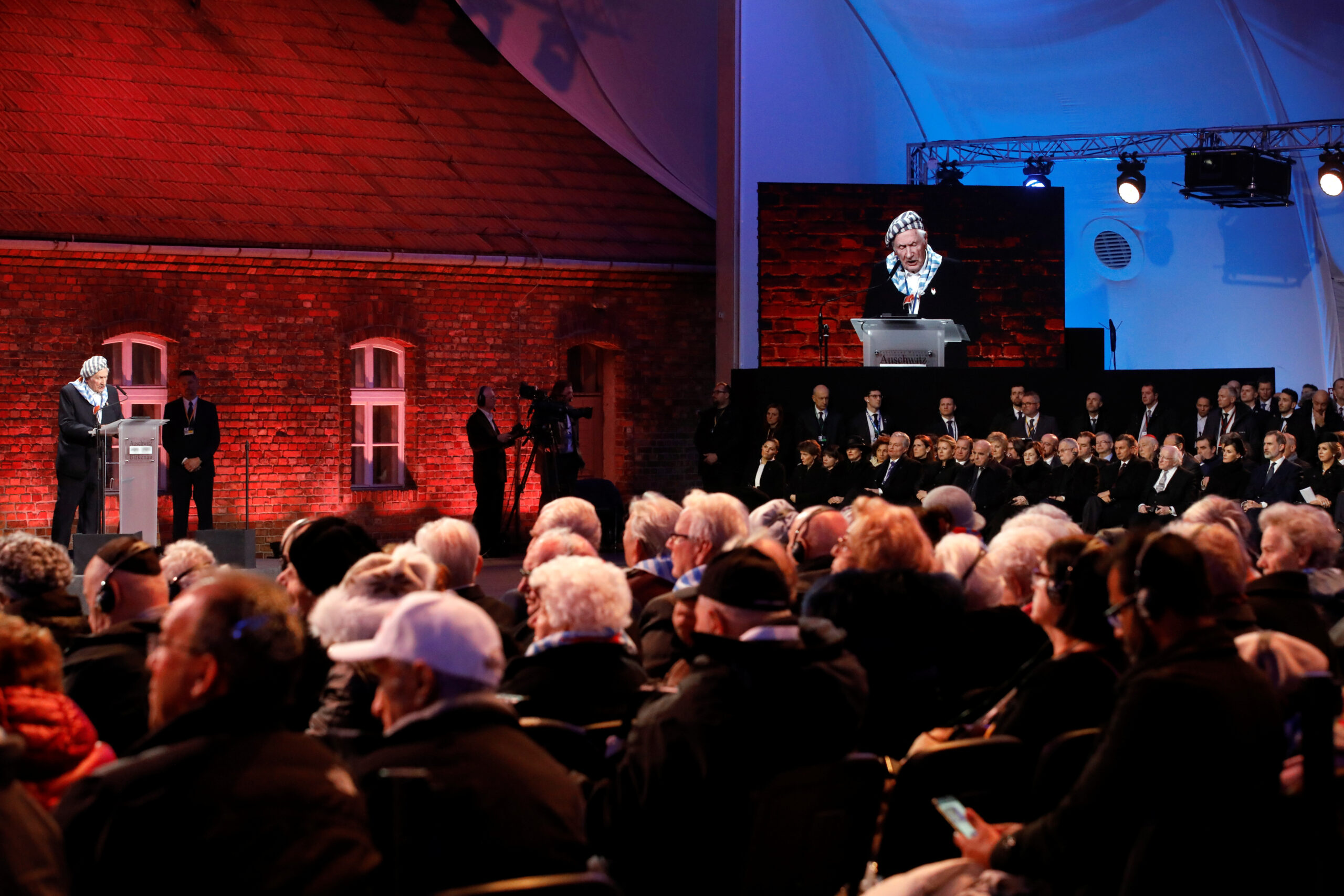
Galvin Zaldivar
Never again.
That was the slogan the world embraced again on Monday in commemorating International Holocaust Remembrance Day and the 75th anniversary of the liberation of Auschwitz.
The notorious concentration camp was one of the largest constructed by the Nazis to carry out their “Final Solution”, which culminated in the deaths of 6 million Jews. 1.1 million of which were killed at Auschwitz.
Dignitaries from around the world attended the event, including Canada’s Governor General.
Andrzej Duda, the president of Poland led the commemorations in a ceremony at the site of the camp itself.
“On behalf of the Republic of Poland, it is my privilege and guard, to always nurture the memory and guard the truth about what happened here,” he said.
Survivors including Bat-Sheva Dagan and Elza Baker gave their testimony to the horrors they inexperienced in Auschwitz.
Societies that are replete with anti-semitism don’t tend to be very good societies.
Ran Ukashi, B’nai Brith Canada
“It is difficult for me to hide my feelings,” Dagan, a Holocaust speaker and educator said.
“I’m standing here in front of you, unsure whether it is real, or whether I’m dreaming that I am here with you 75 years on, after what happened here, this great suffering that took place here.”
Baker, whose speech was read out on her behalf, testified to her experience as a Sinti inmate at Auschwitz. The Sinti, a Romani ethnic group in central Europe, were targeted by the Nazis as gypsies.
“The extermination camp of Auschwitz was just one side of the genocided committed against Sinti and Roma,” she said. “All over Nazi-occupied Europe, Sinti and Roma were murdered in camps, or shot by execution squads.”
Around 500,000 Sinti and Roma were victims of the Nazi’s genocide.
“Hopefully, this memorial site and museum will remain here for many years to come as a warning to people not to let racism and insane ideologies, backed by wrong sciences, like for example, eugenics, gain power again.”
In Canada, Ran Ukashi, the national director for the League of Human Rights with the Jewish group B’nai Brith Canada, told Humber News on Monday there is still much to learn from the Holocaust and the events that led to its extermination.
‘It begins over time’
“I think that when people talk about the lessons of the Holocaust, and people often focus on … the culmination of what the Holocaust was, and people must realize that the extermination of 6 million people does not begin in one day, it begins over time,” he said.
Hatred for Jewish people, Ukashi said, is often indicative of further prejudices and hatred.
“Societies that are replete with anti-semitism don’t tend to be very good societies,” he said.
It is also important to document and record the stories and testimony of survivors of the Holocaust, and carry their stories forward to the next generation, he said.
There is a special urgency to this, he said.
“There are efforts to record the testimonies of survivors remaining survivors because, of course, once the ultimately perish, then you’re going to have more people come out of the woodwork questioning the veracity of the Holocaust,” Ukashi said.
He said that living testimony makes it harder to outright deny the Holocaust
“I saw one in New York actually, where you can use a screen where you have an almost interactive ability to work with a recording,” Ukashi said. “And this is very in a very innovative form of technology where people can actually interact with recordings of survivors.”
Ukashi said one of the best ways to combat anti-Semitism is through education.
“Starting from a young age, there needs to be education for all people of all backgrounds so that anti-Semitism and all forms of racial bigotry and hatred are inexcusable and concerted efforts to root this out early on,” he said.
Consequences should also be enforced when anti-Semitic acts cross over into criminality, Ukashi said. Especially online, where its global reach and ubiquity make it easy for dangerous ideas to proliferate.
“More needs to be done in terms of social media companies, or these various platforms in enforcing their own community guidelines, and really monitoring the phenomenon,” he said.
“Where anything criminal is happening, we need to work with law enforcement.”

